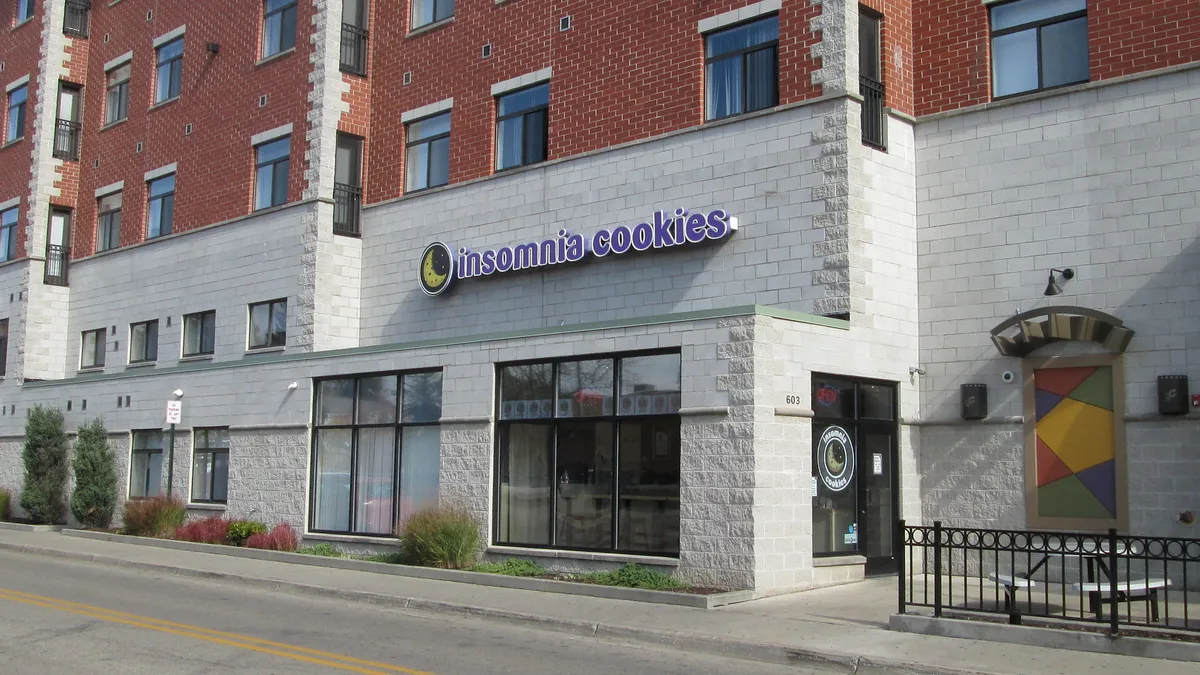Two former general managers for bakery chain Insomnia Cookies sued the company Sunday, alleging it failed to pay them for all hours worked — including overtime — and failed to reimburse one for the cost of making deliveries.
According to the class and collective action suit, Williams v. Insomnia Cookies LLC, the first of the named plaintiffs worked more than 100 hours per week at one point during November 2021, but was only paid for 45 hours of work. The employee also alleged Insomnia failed to pay him an additional 33 hours of overtime hours and 38 hours of paid time off. Insomnia “improperly and unlawfully utilized” PTO to pay portions of his overtime wages, he claimed.
The second plaintiff alleged that, although he was scheduled to work 45 hours per week, Insomnia required him to be on call 24 hours a day with an expectation to answer calls and emails. The plaintiff said he was paid one hour extra per week for contingencies, but that he typically would spend between 10 to 30 extra hours on his personal computer to help manage the store.
At one point, the latter plaintiff also alleged he would frequently work between 50 and 60 hours per week through the end of his employment, but that an Insomnia district manager “would frequently fail to add the recorded hours of overtime by claiming that he didn’t know how to add the hours on paper,” according to the complaint, filed in a New York federal district court.
Insomnia tasked the second plaintiff with using his own car to assist with cookie deliveries when no driver was available, he alleged, but the company did not reimburse him outside of an additional two dollars per each delivery performed.
Insomnia Cookies did not respond to an HR Dive request for comment.
Class and collective action claims have led to costly settlements for food service companies in recent years, particularly where delivery work is involved. In 2021, a Domino’s Pizza franchisee operating stores in North Carolina and South Carolina agreed to pay $3 million to settle claims that the stores required drivers to pay for their own delivery expenses without reimbursement.
In 2020, the U.S. Department of Labor published an opinion letter stating that employers may reimburse delivery drivers who use their personal vehicles to complete deliveries with a “reasonable approximation of expenses incurred for the employer’s benefit rather than the actual amount of expenses incurred” to comply with the Fair Labor Standards Act.















